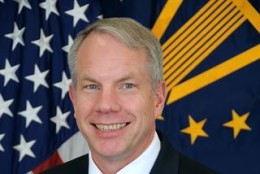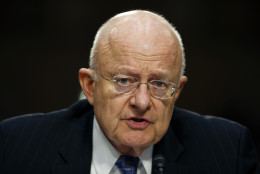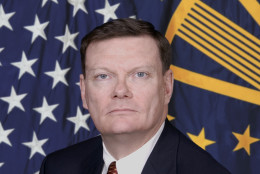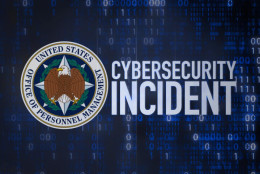National Background Investigations Bureau
-
Agencies will know later this month how much more they will have to pay for security clearances to the National Background Investigations Bureau. The NBIB will meet initial operating capability on Oct. 1 and begin processing all security clearance cases.
September 07, 2016 -
DoD will ask around 3,000 current employees to move from the traditional civil service system to one that offers them fewer job protections but might also boost their pay and promotion prospects.
August 19, 2016 -
Dave DeVries, currently DoD’s principal deputy CIO, will help OPM transition to the new National Background Investigation Bureau.
August 09, 2016 What's the latest in the clearance job market? Find out this week when Evan Lesser, managing director and co-founder of ClearanceJobs.com, joins host Derrick Dortch. July 29, 2016
July 29, 2016-
Agencies are meeting an administration goal to cut the number of federal employees and contractors who need security clearances for their jobs. But the intelligence community is still struggling to process security clearance investigations more quickly.
June 30, 2016 -
The Senate wants DoD to handle its own security clearances by 2018.
June 01, 2016 -
In a letter to acting OPM Director Beth Cobert, Sens. Claire McCaskill (D-Mo.) and Jon Tester (D-Mont.) say they're concerned the agency doesn't have firm plans for transitioning the federal security clearance process from the old organization to the new National Background Investigations Bureau.
May 19, 2016 -
The Office of the Director of National Intelligence released much-anticipated guidance on using social media during background checks.Bill Evanina, director of the National Counterintelligence and Security Center at ODNI, said the policy is a collaborative effort to "strike the right balance" between obtaining publicly available information but not stepping on civil liberties.
May 13, 2016 -
Current and former intelligence community officials say they're not getting the buy-in they need from their top leadership — or the guidance they need to use begin using social media — in their insider threat and security clearance programs.
April 28, 2016 -
The investigations process is to blame for higher security clearance processing times at the beginning of 2016 and end of 2015. Challenges with culture, resources and legal questions are also pushing agencies farther and farther off schedule in standing up their own insider threat programs.
April 01, 2016 -
The Defense Department’s top tech official said his top worry is the retention and recruitment of talented employees as pay and benefits make it more enticing to work for private companies.
March 23, 2016 -
James Onusko and Christy Wilder will be the National Background Investigations Bureau (NBIB) transition team director and deputy director, respectively. They will lead the effort to create a new organization to handle federal security clearances.
March 18, 2016 -
Congress is skeptic of the Office of Personnel Management's new IT infrastructure project, otherwise known as "Shell," due to previous warnings from the agency's inspector general. OPM's former IG referred to the system as "at risk of project failure." OPM is asking for $37 million to begin planning and migrating old systems to the new infrastructure in fiscal 2017.
March 14, 2016 -
The House Oversight and Government Reform Committee questioned the administration on its new federal security clearance reform plan. Members of the committee wanted further details about the Office of Personnel Management's role in the new process, as well as the timeline, funding, and the authorities that DoD would have under the National Background Investigations Bureau.
February 25, 2016 -
A successful transition to the administration's new federal security clearance program will take the right technology, timing and leadership, former federal intelligence community experts said.
January 29, 2016












